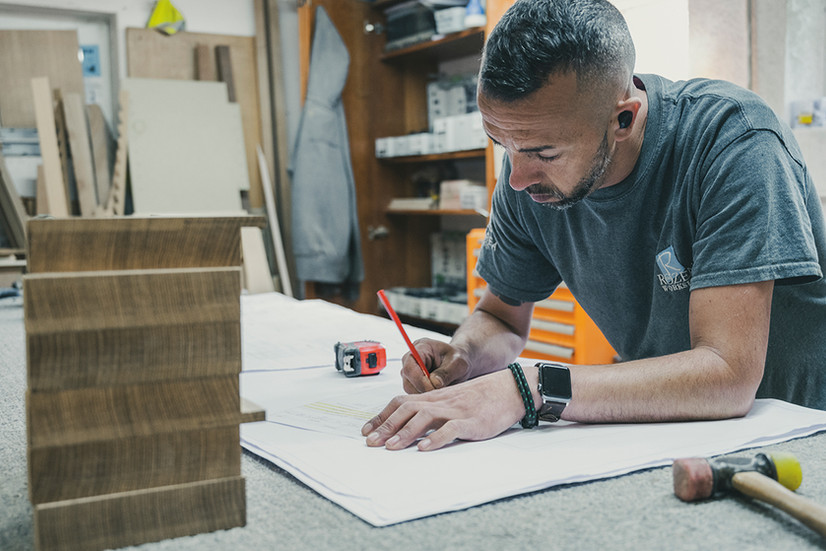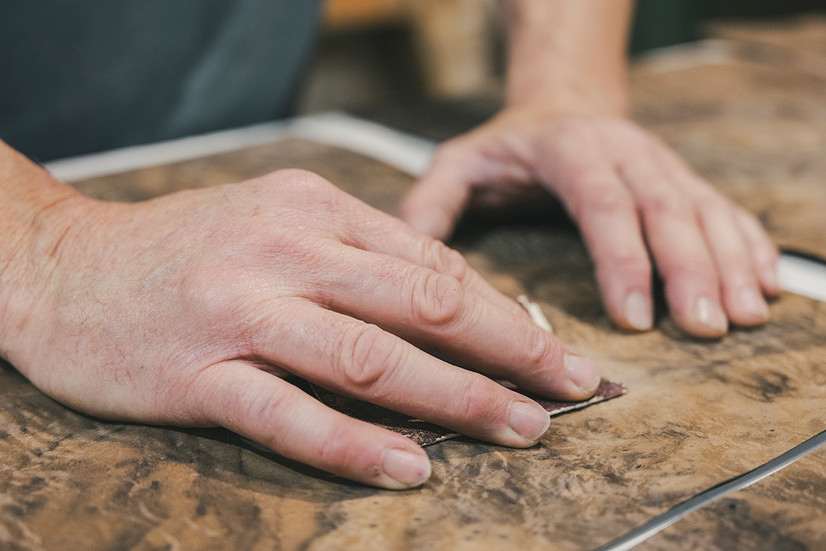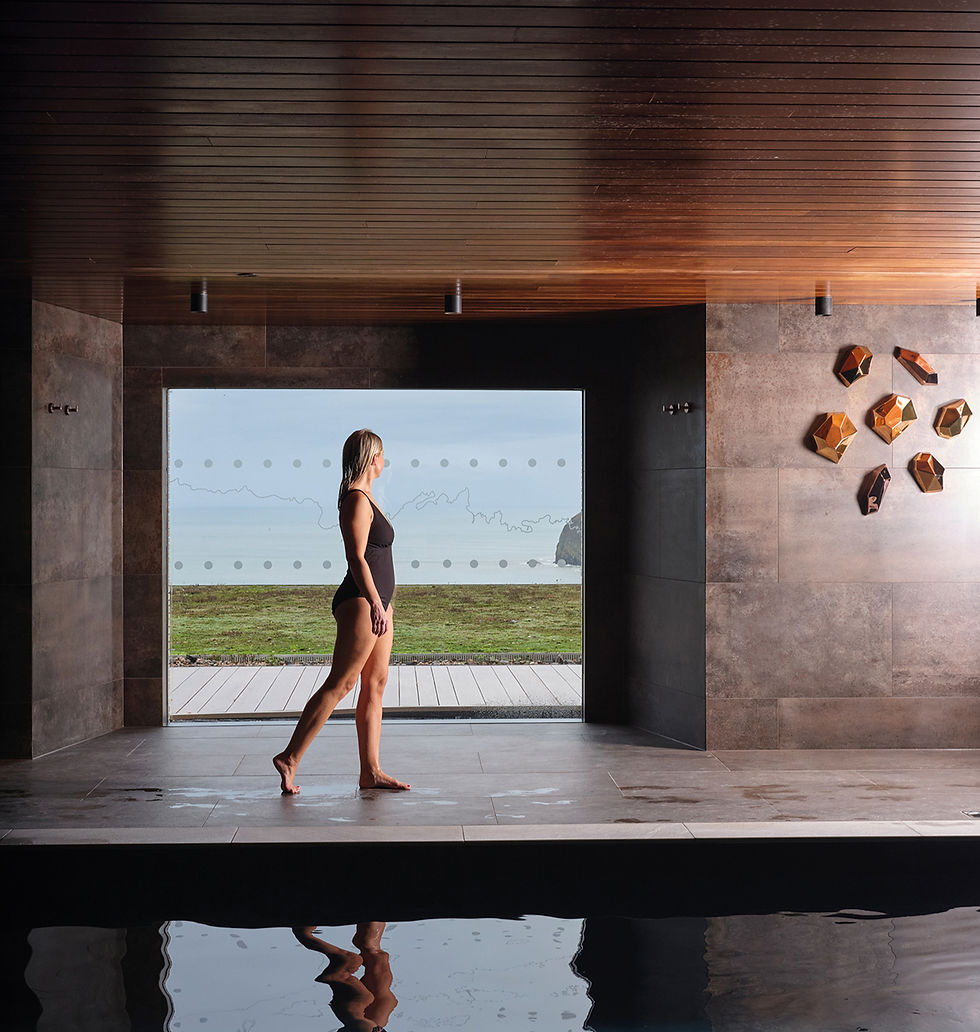Crafted to Last
- Jul 3, 2025
- 5 min read
Updated: Jan 9
Words by Jamie Crocker
Cornwall’s Rozen Furniture transforms timber into treasures for discerning clients across Britain.

Four decades ago, when their employer announced he was abandoning cabinetmaking to pilot Cornwall’s first air ambulance, Alan (19) and Ian (28) faced a crossroads that would reshape their lives. With limited options in rural Cornwall and no desire to leave their beloved part of the world, they made a decision that seemed equal parts surreal and inevitable: they would start their own furniture company.
The story of Rozen Furniture begins not with grand ambition but with necessity. Working for a small outfit that employed just three craftsmen, Alan and Ian found themselves at a crossroads. “There wasn’t really much work around here for joiners,” Alan recalls, his voice carrying the authority and knowledge shaped by years of experience. “The area wasn’t known for this kind of trade.”
However, what began as an act of survival has evolved into something far more substantial. Today, Rozen Furniture employs twelve people alongside the same number of self-employed fitters, finishers and designers, all housed in one location at its Lizard Peninsula workshop. The transformation from two young men “having a laugh and a bit of fun for the first few years” to a respected name in bespoke furniture reflects both the durability of their determination and the enduring appeal of what they produce.
The company’s early years were marked by the kind of pragmatism that is the hallmark of small businesses. Alan and Ian divided responsibilities naturally: Ian handled sales while Alan remained workshop-bound, developing the technical expertise that would become the company’s foundation. Their first significant breakthrough came through serendipity when a company in Penzance, struggling with their own commitments, offered Rozen a contract with Heal’s of London.
This partnership with the prestigious furniture retailer marked a pivotal moment. From being one of thirty UK suppliers to Heal’s, Rozen watched as competition dwindled to just three companies, with most manufacturers relocating production to the Far East. The experience taught them valuable lessons about both opportunity and vulnerability in global markets.
The trade work that sustained them through the 1990s and into the new millennium provided more than financial stability. It offered what Alan describes as a “finishing school” arrangement with Cornwall College, where recent graduates would join Rozen to develop their skills on production work before progressing to commission pieces. This system created a pipeline of talent that continues to benefit the company today, with several employees now marking over twenty years of service.
Yet it was the transition from trade work to bespoke commissions that truly defined Rozen’s character. The moment came when a client from Devon walked into their workshop seeking not individual pieces but a complete house package. “He came down here, looked around, and said ‘Yeah, we’ll get the paperwork sorted and get on with it,’” Alan remembers. “That was our first proper joinery package.”
This shift towards comprehensive interior solutions has become Rozen’s signature. They now regularly undertake projects valued between ten thousand and half a million pounds, working on properties that span the spectrum from substantial renovations to multi-million-pound new builds. The scale might have changed, but the fundamentals remain constant: quality craftsmanship delivered on time and within budget.
The company’s relationship with architects and interior designers has proved particularly fruitful. Several high-end practices now consider Rozen their preferred supplier, returning project after project based on proven reliability. This repeat business forms the backbone of their success, creating relationships built on mutual trust and professional respect.
Alan’s approach to these partnerships demonstrates an understanding of construction dynamics that goes beyond simply making furniture. “We know our job, they know theirs,” he explains. “They know how to build a house but don’t always know how to get fully into the product detail. That’s our strong point.” This collaborative approach has earned them a particular niche in projects where precision is crucial and there is no room for imperfection to hide.
The geographical advantages of their Cornish location have proved unexpectedly beneficial. Many London clients are charmed by the idea of commissioning work from Cornwall, a factor that Alan acknowledges helps significantly. “A lot of people love the idea of something being linked with Cornwall,” he notes, though he’s careful not to overstate the case. The county’s reputation for quality craftsmanship provides a useful starting point, but the reputation must be earned through consistent delivery.
Sustainability presents ongoing challenges in furniture manufacturing, though Alan observes that supplier evolution has made progress possible. The black walnut that forms a major part of the base material for projects is sustainably grown in Poland, with trees harvested on seven to eighteen-year cycles. The company continuously seeks ways to reduce waste and improve its environmental impact, balancing commercial necessities with responsible practices.
The workforce retention that characterises Rozen speaks to something deeper than mere job satisfaction. Alan attributes this stability partly to luck but acknowledges that creating an environment where skilled craftspeople can thrive requires deliberate effort. The company maintains an apprenticeship programme, ensuring knowledge transfer from experienced makers to newcomers, whether they arrive fresh from college or as career changers in their forties and fifties.
Looking ahead, with Ian having retired in April 2023, Alan shows no inclination to step back despite approaching forty years in the business. “We’ve spent a lot of years building this up,” he reflects. “I want to try and enjoy it a bit and see it grow.” The company continues to evolve, recently expanding into staircase work and exploring new avenues while maintaining its core commitment to bespoke furniture.
The contrast between Rozen’s workshop and the grand homes they furnish is not lost on Alan. Working regularly in properties that cost more than most people will earn in a lifetime, he maintains perspective through Friday evening visits to his local pub, grounded in the community that shaped both him and his business. This connection to place runs deeper than marketing advantage; it represents a choice about how to live and work that prioritises substance over scale.
Rozen Furniture’s story illustrates how traditional skills can adapt and thrive in contemporary markets without compromising fundamental values. From that moment of crisis four decades ago when two young craftsmen chose to cut their own groove, they have built something that transcends mere commercial success. They have created work that matters, in a place they love, for clients who value the difference between manufactured and made.
In an industry increasingly dominated by mass production and global supply chains, Rozen represents something both traditional and radical: the idea that furniture should be built to last by people who care about their craft.




















